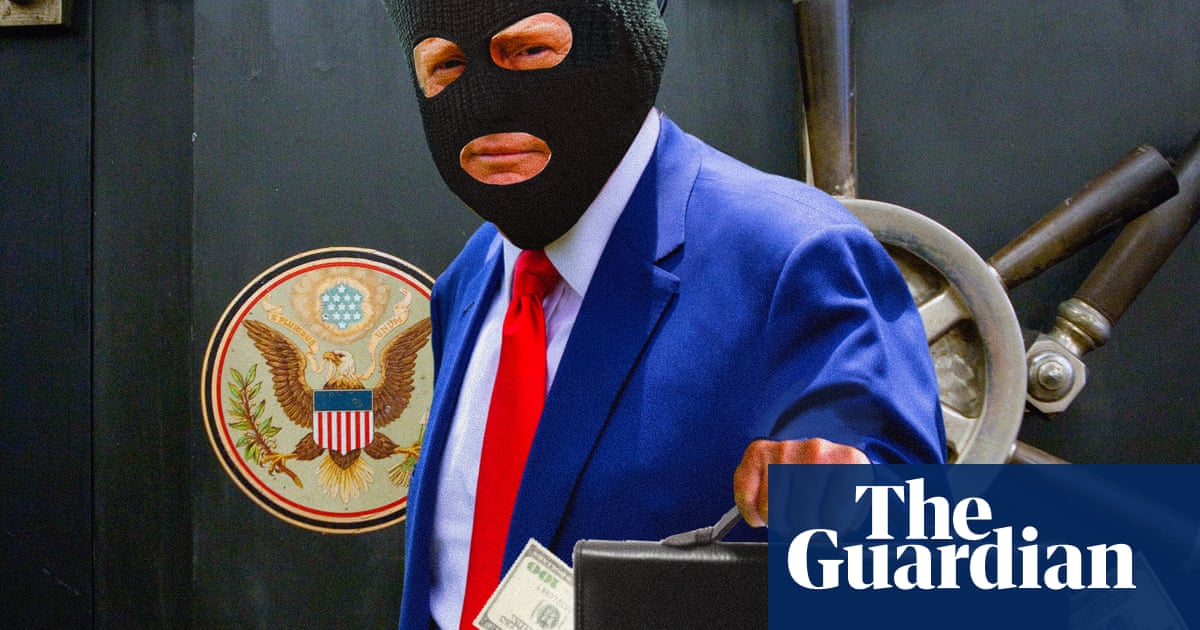The Tesla Takeover: A Glimpse into Politics and Profit at the White House
A Surreal Sales Pitch
The South Lawn of the White House transformed into an electric vehicle showroom, a sight so unusual that it demanded attention. Donald Trump, the president at the time, emerged with charismatic exuberance, posing beside five gleaming Tesla models. "I love the product, it’s beautiful," he declared as he slid into the driver’s seat of a striking red Model Y. Accompanying him was Elon Musk, the tech mogul whose empire had become synonymous with innovation. Trump went on to boast about Tesla’s affordable monthly lease—a mere $299, he enthused, an offering he deemed "pretty low."
Political Transactions Unveiled
Days after this unusual promotional event, a revelation from the New York Times unraveled further intrigue: Musk had pledged an astounding $100 million to political groups supporting Trump’s campaign efforts. This wasn’t Musk’s first financial gamble in politics; he had previously funneled nearly $300 million toward securing Trump’s election. The intertwining of business and politics was epitomized when Trump’s commerce secretary, billionaire Howard Lutnick, appeared on Fox News, encouraging the public to "buy Tesla." Lutnick’s glowing endorsement seemed conflicted, considering his longstanding ties and vested interests in Tesla stock.
Friends in High Places
In a mere week, these powerful figures illustrated a classic case of mutual benefit, as billionaires in favor of each other’s success thrived. Even after their eventual fallout, the imagery of Trump and Musk together at the White House was emblematic of Trump’s burgeoning second term—a moment that reflected an era where ethics in politics seemed diminished.
The Ethical Abyss
As we examined those eight days, it became clear this was merely a peek into a broader ethical landscape marred by questionable transactions. One such instance was the Qatari government’s gift: a lavish $400 million luxury jetliner intended for use as Air Force One. Despite the backlash from various quarters, Trump’s indomitable spirit shone brightly, even dismissing critics like Ben Shapiro, who voiced discomfort at the gift’s implications.
A Financial Free-for-All
The timeline of potential misconduct didn’t stop there. An array of questionable dealings emerged: multimillion-dollar television packages, lucrative real estate partnerships in oil-rich nations, and extravagant price tags for dinners in Trump’s presence, with some costing up to $5 million. These transactions pointed to a startling pattern of graft, where the lines between business and the presidency began to blur.
Ethics on the Edge
The disarray surrounding ethics led to a sense of a "flooding the zone" strategy, where rapid-fire financial dealings overwhelmed oversight bodies’ capacity to investigate. Kathleen Clark, a law professor specializing in government ethics, articulated this chaos, emphasizing how the sheer volume of questionable actions left watchdogs struggling.
Political Favor for Profit
Senator Chris Murphy took to the Senate floor, outlining Trump’s endeavors that could be viewed as a classic pay-for-play scheme. This aptly defined Trump’s administration, where financial benefits were intertwined with political favors—a revelation that drew comparisons to old-fashioned corruption.
A Shift Away from Norms
Trump’s first term had already set a precedent for ethical concerns when he refused to divest his assets into a blind trust. Instead, he maintained control through a family trust, raising eyebrows when foreign officials flocked to his hotels, generating millions for his personal coffers. Such audacious dealings set a tone that now felt less shocking and more emblematic of a new political culture.
Scaling Back Progress
As news of Trump’s re-election spread, ethical considerations seemed to fade to the background. Just weeks before the inauguration, Melania Trump secured a $40 million deal with Jeff Bezos for an Amazon Prime documentary, showcasing how the Trumps were ready to translate political capital into personal profit. On the ground, plans accelerated for leveraging Trump’s status, addressing disputes with tech firms and negotiating lucrative settlements.
Paving the Way for Cryptocurrency
Amidst these political dealings, crypto was quickly emerging as another lucrative frontier. Trump actively sought to establish his presence in the cryptocurrency sphere, drafting executive orders to promote the industry. Simultaneously, he distanced himself from regulations targeting prospective threats to his investments.
The Exploitation of Trust
Trump’s family wasn’t just dabbling in finance; they were diving headfirst. They launched various cryptocurrencies including $Trump and $Melania, leveraging his presidential charm to generate hype and revenue. The growth was astonishing, and the potential for profit from presidential initiatives seemed boundless.
An Open-Ended Ethical Quandary
The ramifications of Trump’s second term extended beyond mere business; they raised questions about the very nature of governance. Political patrons and lobbyists began asserting deeper influence than ever before, ingraining themselves within the fabric of his administration while promoting interests that contradicted the needs of the public.
The Disconnect with the Working Class
Ironically, Trump’s promises to "drain the swamp" for the working class morphed into a spectacle of lobbying and special interests. A review from the Campaign Legal Center revealed that Trump nominated an array of previous lobbyists, creating a cycle that seemed to support the very interests he publicly denounced.
The True Cost of Compromise
Evan Feinman, who led a groundbreaking initiative to expand internet access, experienced this new reality first-hand. Shortly after Lutnick’s appointment, the plans for high-speed internet were reportedly sidelined in favor of satellite systems that would shift profits towards billionaire financiers, namely Musk. This move jeopardized access for many rural Americans who had placed their trust in Trump’s promise of progress.
Money Over People
This trajectory reflects a broader trend where the motivations of the administration increasingly catered to elite interests rather than the needs of everyday Americans—raising concerns about transparency and accountability. As the administration continued to prioritize personal and political profit, the initial bonds of trust began to fray.
Throughout these unfolding events, a glaring pattern emerged: an administration that seemed to operate not as a government for the people but as a mechanism for financial gain, pushing ethical boundaries further than ever.


